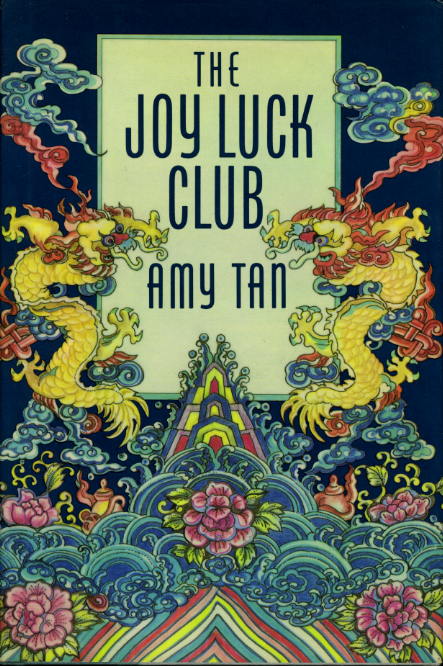 Towards the beginning of tenth grade English, we read The Joy Luck Club, interlocking stories of how values were transmitted from Chinese immigrant mothers to American-born daughters in four different families. It was an unusual choice for a curriculum that otherwise focused on the Western canon, but appropriate for a class with many first- and second-generation, Asian American students. Much of the plot concerned the daughters’ assimilation, which was both encouraged and denigrated by their mothers, and as a fourth-generation American obsessed with how my family’s original culture had faded across the generations, the stories of the mothers’ incomplete transmission of culture to their daughters fascinated me.
Towards the beginning of tenth grade English, we read The Joy Luck Club, interlocking stories of how values were transmitted from Chinese immigrant mothers to American-born daughters in four different families. It was an unusual choice for a curriculum that otherwise focused on the Western canon, but appropriate for a class with many first- and second-generation, Asian American students. Much of the plot concerned the daughters’ assimilation, which was both encouraged and denigrated by their mothers, and as a fourth-generation American obsessed with how my family’s original culture had faded across the generations, the stories of the mothers’ incomplete transmission of culture to their daughters fascinated me.
In my essay on the book I alluded to these preoccupations, though I had to skip a generation in my family to attempt the comparison:
The generational and cross-cultural tensions were also real to me. However, they are more like my relationship with my grandmother, who remembers what it was like to live under the shadow of values from another world. Like the mothers in The Joy Luck Club, my grandmother cannot always understand why certain things matter to me, and how her children have progressed so far from the old ways.
The comparison wasn’t perfect — my grandmother, daughter of immigrant parents (Fanny, who wasn’t abandoned, and Abe, who didn’t lose his pinky), paralleled the daughters in Joy Luck Club, not the mothers, but my teacher caught my meaning well enough. The essay was not one of my better efforts — honestly, I recall just typing up what was in my head and submitting it with minimal editing, which was really asking for trouble from a teacher who was such a notoriously tough grader — except she proclaimed it “Excellent.” It was only after speaking with her after class that I realized the way I saw the world — had always seen the world — through the lens of genealogy was not prosaic to her. Really, people don’t see their own lives in the context of the generations that came before? It sounds silly to say now — I’ve been doing genealogy for far too long not to realize that much of the world is bewildered by our obsession — but at that time it came as a surprise.
This whole episode came flooding back when I bumped into her while home for Thanksgiving. I caught her up on my life since graduating high school — how Treelines not only gave me the opportunity to write code and prose professionally, but also to teach about writing family stories — and she immediately exclaimed, “I have to have you come speak to my classes when we read The Joy Luck Club.” How appropriate!
When you’re a kid it’s hard to see accurately how you are like and unlike other people. Her unexpected “excellent” allowed me to see that something I had always taken for granted about myself was actually unique and valuable, and I needed someone else to point that out to me. The story I usually tell about how I got into genealogy is much more straightforward — a family history book arrived when I was 12, inspiring me to start my own research — but two years later this assignment pushed me along in an important way, too. Even after two decades of family history work, these fundamental questions of cultural transmission still preoccupy me.
When did you realize you had a genealogy-brain?
 Follow
Follow
Pingback: Here's What The World Was Like In 1989 | Sharing Interesting Stuff, Updates News & Free Tips